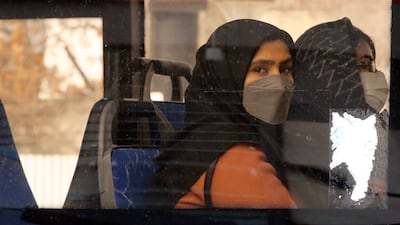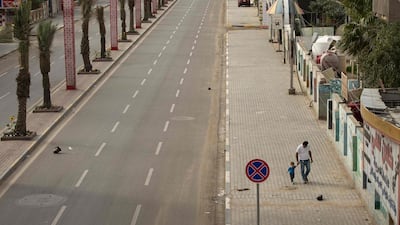Iran on Saturday announced a two-week travel ban to contain a surge in Covid-19 infections driven by the Omicron variant.
Immigration authorities said Iran would remain closed to travel by air for 15 days from December 25.
A decree was issued by the National Task Force for Fighting Coronavirus.
Iranian citizens living in neighbouring countries can enter the country by land routes if they have received at least two doses of a Covid-19 vaccine and possess a negative PCR test card, the Islamic Republic News Agency said. They will need to take another PCR test at the border.
Rouhollah Latifi, a customs representative, said the restrictions will not apply to passengers travelling on health visas, for study or trade purposes, or people who have permanent residency permits.
Freight travel through land borders will continue in the meantime.
The new travel measures come as Iran struggles to prevent a surge in Omicron infections, amid efforts by the government to get more people vaccinated against the disease.
Health Minister Bahram Einollahi said on Saturday that the rapid spread of Omicron may pose serious threats to the country.
He emphasised that few cases of the variant had been identified.
Mr Einollahi said that Iran has two “golden weeks” to expand booster vaccination coverage to more people to prevent a potential explosion in the number of infections with Omicron in early January.
Health ministry figures published on Saturday showed that booster vaccine shots delivered across Iran had reached nearly 5.5 million doses.






















